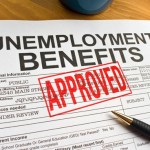
House Arrest Not A Bar To Unemployment Compensation
In a recent decision, Chamberlain v. UCBR, the state Supreme Court determined that a man under house arrest is still eligible for unemployment compensation benefits.
In this case, the claimant was found eligible to receive unemployment compensation benefits, but was subsequently sentenced to sixty days on house arrest for driving with a suspended license. While on house arrest, the claimant was permitted to work, run errands and shop for Christmas. However, as a result of the claimant’s house arrest, he was informed that his benefits were suspended.
Under unemployment compensation law, a claimant is not eligible for unemployment compensation benefits for any weeks of unemployment where the claimant is incarcerated. As a result, prior to this decision, as a matter of law a claimant could not collect unemployment compensation benefits if he or she was in prison, on work release or on house arrest.
In finding that the claimant was eligible for unemployment compensation benefits, the Commonwealth Court’s deciding factor was whether the person under house arrest was able to go to work or was truly removed from the workforce.
Aside from the fact that your former employee may still be entitled to unemployment compensation benefits, even if they are on house arrest, this decision also has another important take-away. The main purpose of the Unemployment Compensation Law is to provide security to those who lost their jobs through no fault of their own, and the courts will seek to provide that security as long as the claimant is able and available to work.